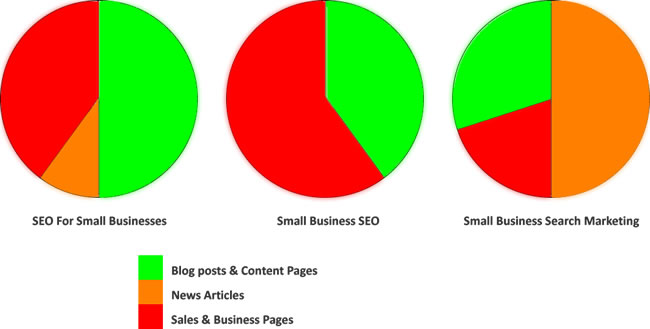Imagine this: You have had lots of buzz around content marketing and you have been told that it’s the best thing since sliced bread. So you start creating lots of content, and publishing as much as you can.
But after several weeks, or months you aren’t getting the results you had hoped for. Either you are getting no traffic at all, or maybe you’re just not seeing the Google rankings you had hoped for.
Your problem could be in failing to understand user intent. And if you’re not sure what that means, read on!
Understand The Purpose Of Your Content
Before you worry too much about whether your content is going to rank, you need to consider what the purpose of your content is. Different types of content perform better on different platforms (and for different types of users).
For example: This post is the sort that will probably do better on social media. This is because it talks about a topic that is relatively unlikely to be Googled. The aim of this post is to be shared and attract links.
That doesn’t mean that I won’t get any search engine traffic, but if my main goal was to get traffic from a search engine, I would have written a different post with a more focused and in demand topic.
For example, based on the title of this post you could imagine that I might hope to rank for “content marketing” or perhaps “how to rank higher in Google”. The reality though is that a user who searches for “how to rank higher in Google” probably wants a more basic and comprehensive tutorial style post about SEO.
It is important to vary your content, so that some times you are writing a post that can effectively target keywords for SEO’s sake and other times you are writing content for other audiences (diversifying your traffic sources).
When Writing For Search Engine Traffic
Just to be clear, I’m not talking about writing “SEO content” (that’s just one of many easy ways to ruin your user experience), you should always be writing your content for your readers. What I am talking about is more like selecting a topic appropriately.
If you want your content to rank, it is generally a good idea to start with some keywords in mind, so let’s run through an example:
Let’s say you have a selection of keywords you would like to rank for:
seo for small businesses (4sales,6posts)
small business seo (6sales,4posts)
small business search engine marketing (1news,1guide,1article,4sales,3posts)
These are intuitively pretty similar searches, so you might be forgiven for just choosing your preferred wording. Or worse yet, just targeting the phrase with the best search volume. But it’s also important to consider how different wording can imply a different user intent.
The simplest way to guage user intent is to “Google It”, there are 2 reasons for this:
- Google have lots of user data that they can use to judge user intent and serve results accordingly.
- If you want to rank, your content has to be inline with what Google wants to show for that query.
The way to do this is simple. Start by Googling each phrase (use incognito to avoid personalisation bias) and opening up the first 10 organic results. In other words, see what is ranking already for that phrase.
Do your best to categorise the results and group them. You can even make a chart to visualise the data. For these three phrases for example here are the results that I got:

As you can see, I sorted them into groups of, blog post type pages, news articles and sales pages (typically pages of SEO agencies). What you can clearly see is that Google thinks that:
- “small business SEO” is more likely to imply the intent of looking for an SEO agency
- “seo for small businesses” is more likely to imply the user is looking for advice/content
What is interesting is that “small business search marketing” seems to be mostly served by news type results (similar to blog posts, but from more mainstream news sites such as the Huffington Post). But overall the intent is clearly leaning towards content vs sales.
So the question is, if you wanted to target this type of niche with your content marketing, which phrases would you focus on? Whereas if you were optimising your agency’s home page, which phrase would you target then?